FORWARD OPERATING BASE MAREZ, Iraq - With the advent of the helicopter, airborne military operations became centered on the concept of strategic mobility, or getting the maximum number of Soldiers into the area of operations in the shortest amount of time.
Over the course of five days, members of the Iraqi Army and Kurdish Peshmerga learned all about air mobile tasks, such as providing perimeter and landing zone security, loading and unloading aircraft, movement formations, and detainee operations, at Joint Security Station India, located in Al Kindi, Iraq.
The Iraqis were introduced to the U.S. Army's "crawl, walk, run" concept of training, as they took part in numerous exercises leading up to use of an actual aircraft.
First, the Iraqis observed demonstrations by the 1st Battalion, 36th Infantry Scouts, with 1st Brigade Combat Team, 1st Armored Division. Next, they walked through where they should be lined up, each person's responsibilities, and the order for tactically entering and exiting.
The Soldiers trained on a 9-foot by 18-foot wooden box constructed to resemble a UH-60 Blackhawk helicopter, complete with passenger seats and crew chief area. The training culminated with all 22 students loading and unloading aboard actual U.S. UH-60 Blackhawk helicopters.
Through endless repetition, as well as timed drills, they learned to respect the capabilities of the U.S. Army's tactical transport helicopter. The routine quickly turned into the necessary memory needed to react to air mobile situations.
Room clearance and detainee operation scenarios were also added, but the focal point of the training - safe entry and exit of a moving aircraft - trumped everything.
"While this course involved loading and unloading helicopters and the tasks subsequent in getting onto the helicopter, it also included safety factors, such as buckling your safety belt and ensuring you're safe on the helicopter," said Capt. David Fierner, Headquarters Company commander. "Beyond that, it was Americans training Iraqis to lead themselves."
"It was great seeing the progress over the five-day stretch. At first there was some hesitation, but by day five, the Iraqis were training the trainer," said 1st Lt. Andrew Higgins, scout platoon leader and a Mansfield, Ohio resident. "With Iraqis in the lead and Americans on the opposite side with the assist-and-advise mission, we were able to see them grow. And by day five, they were actually able to get in the aircraft, fly around and get out, with very little assistance from U.S. forces."
Perhaps the biggest lesson imparted upon the Iraqis wasn't directly related to the air mobile training. It may have been how American enlisted Soldiers were leading the way in providing this training, leadership and direction, especially for an Army that's not used to seeing such instruction coming from enlisted Soldiers.
"Not only did the Iraqis learn the skills of air mobile operations, but we got to develop them as Soldiers," said Capt. Fierner. "My Soldiers also got to develop camaraderie with the Iraqis, whom they'll be working with in future operations. So, they got to develop a bond and they got to impart their knowledge of this skill onto the Iraqis."
Everyone involved agreed the biggest training improvement would have been more "hands-on" training with actual Blackhawks. There's a huge difference between simulating the placement, loading and unloading of a UH-60, and then actually doing it.
"With more seat time, they could actually jump in and see how hard it actually is to put on seat belts with and without bags loaded inside the aircraft and then flying around," said Staff Sgt. Jeremiah McLaurine, the senior scout with the HHC, 1/36th Inf. scout platoon.
As for the Iraqis, they were pleased to work alongside their American counterparts.
"It's a very good class," said Capt. Ahmad Talib Karim, a 10-year Iraqi Army veteran. "It's motivating for our soldiers to train with the U.S. Soldiers. This is a whole new idea, as we haven't done this before, learning how to load and unload the aircraft. Anashalla - hopefully - we're going to prove we're very qualified for such training.
"Our soldiers are very excited to learn this and they want to learn even more, especially when it comes to flying, loading and unloading the helicopter. These soldiers are the best in their units, that's why they were picked for this class. They've all had Special Forces training, and that's helped them to learn this training," Capt. Karim said.
According to Staff Sgt. McLaurine, a Lima, Ohio, resident, his scouts trained and trained hard. "You train the first time, so people become familiar with it. You train the second time, so you begin to see results. You then train harder, so that way, you're saving lives during combat."
For Sgt. Eduardo Castellar, scout platoon, this was his first experience in instructing the Iraqi Army. "Actually, it was pretty fun.
Having contact with soldiers from another country was a pretty good learning experience. Their language was different, so it was literally hard at times, but I did enjoy it."
"You can see their officers leading their troops, just like we do. That's pretty common for any army. We have Soldiers helping train the Iraqi Army, and they're all getting along pretty good together, helping each other out. They were showing us how they do their training and we showed how we do our training, all the while trying to improve each other," Sgt. Castellar said.
"The Iraqis got some first-hand experience with our aircraft and saw how we load and unload tactically in a combat zone," said Sgt. Vincent Arrelano, scout platoon. "Now, they're more familiar with our tactics so they can transform them into their tactics in the near future. Working together with the Iraqi forces showed them how to train, so they can train their soldiers to become unified and work hand-in-hand in future operations with us."
The proposal to have Iraqi Security Forces participate in on air mobile exercises was generated by the local Stability Transition Team.
After working hand-in-hand with Iraqi Army officials, it was felt that such training would be of huge benefit to specialized Iraqi soldiers.
"The Stability Transition Team working with the 2nd Iraqi Army, brought this idea to 1/36," said 1st Lt. Higgins. "The scout platoon was given a task and purpose. The task was to be able to train the Iraqi Army on air mobility skills, and the purpose was a greater understanding of helicopter usage, and also when the Iraqi Army has its own helicopters, they will have these same skills to be able to train the trainer."
Thanks to the success of such programs as the one at JSS India, the Iraqis will have many more opportunities to learn alongside their American counterparts, especially as the March 7 Iraqi elections draw nearer.
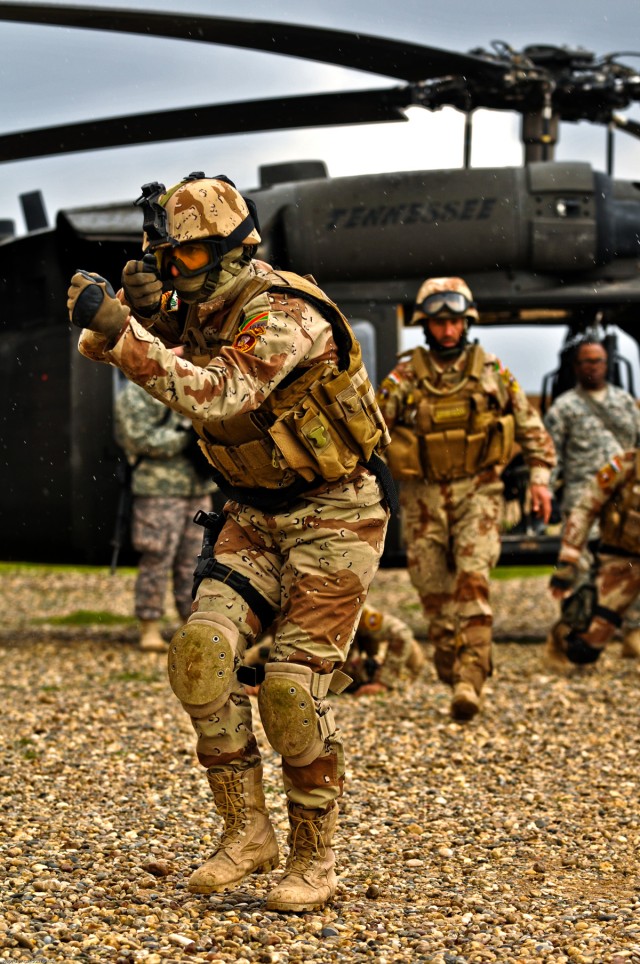
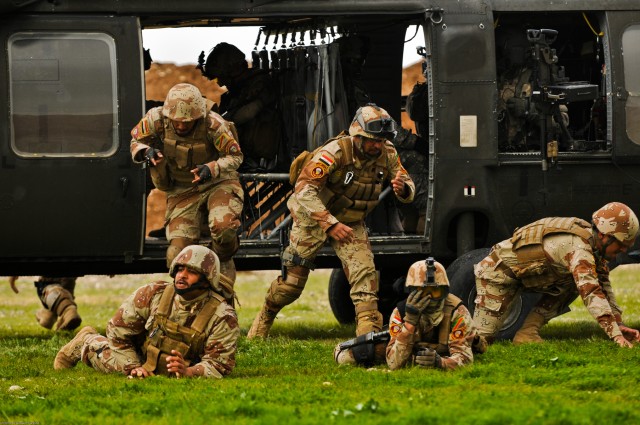
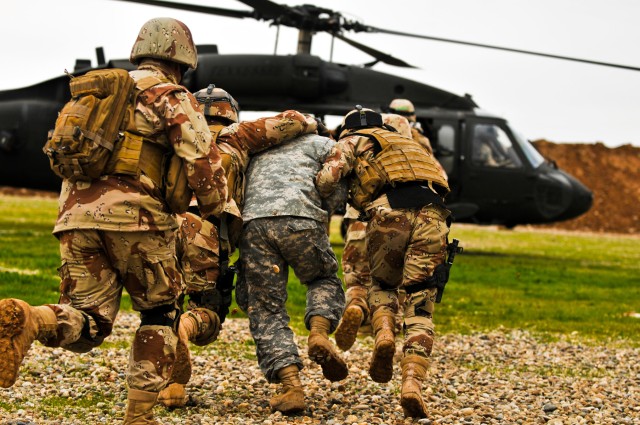
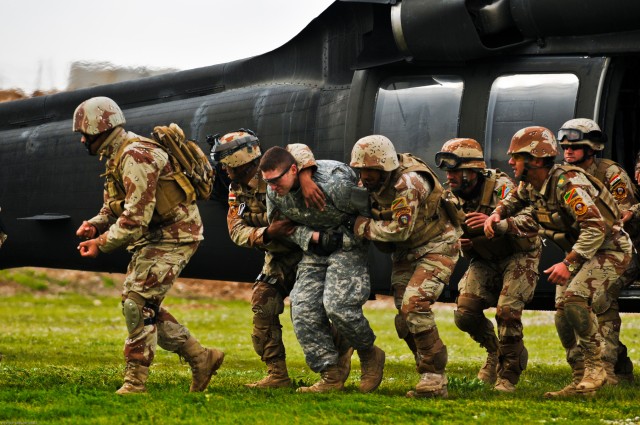
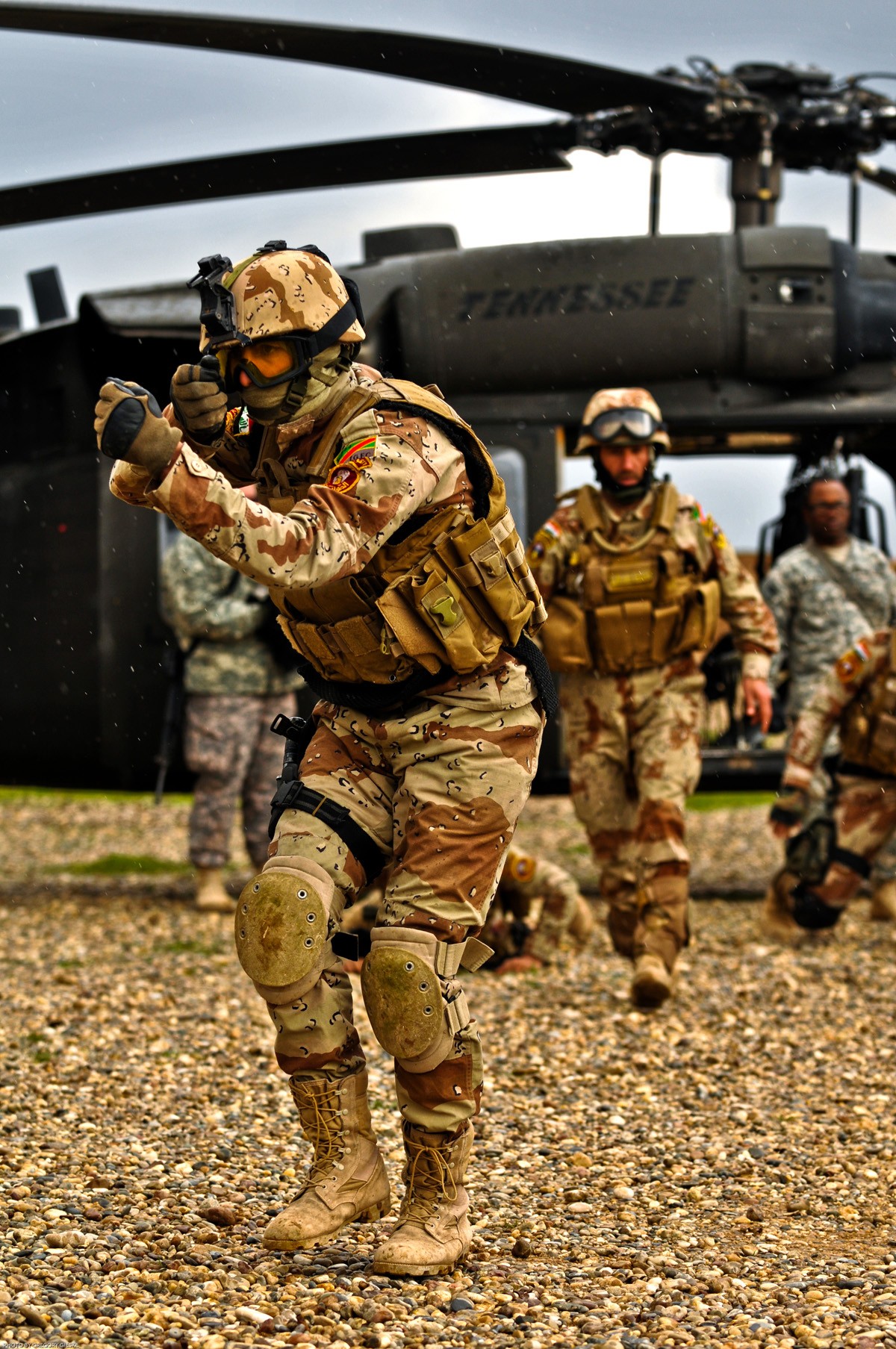
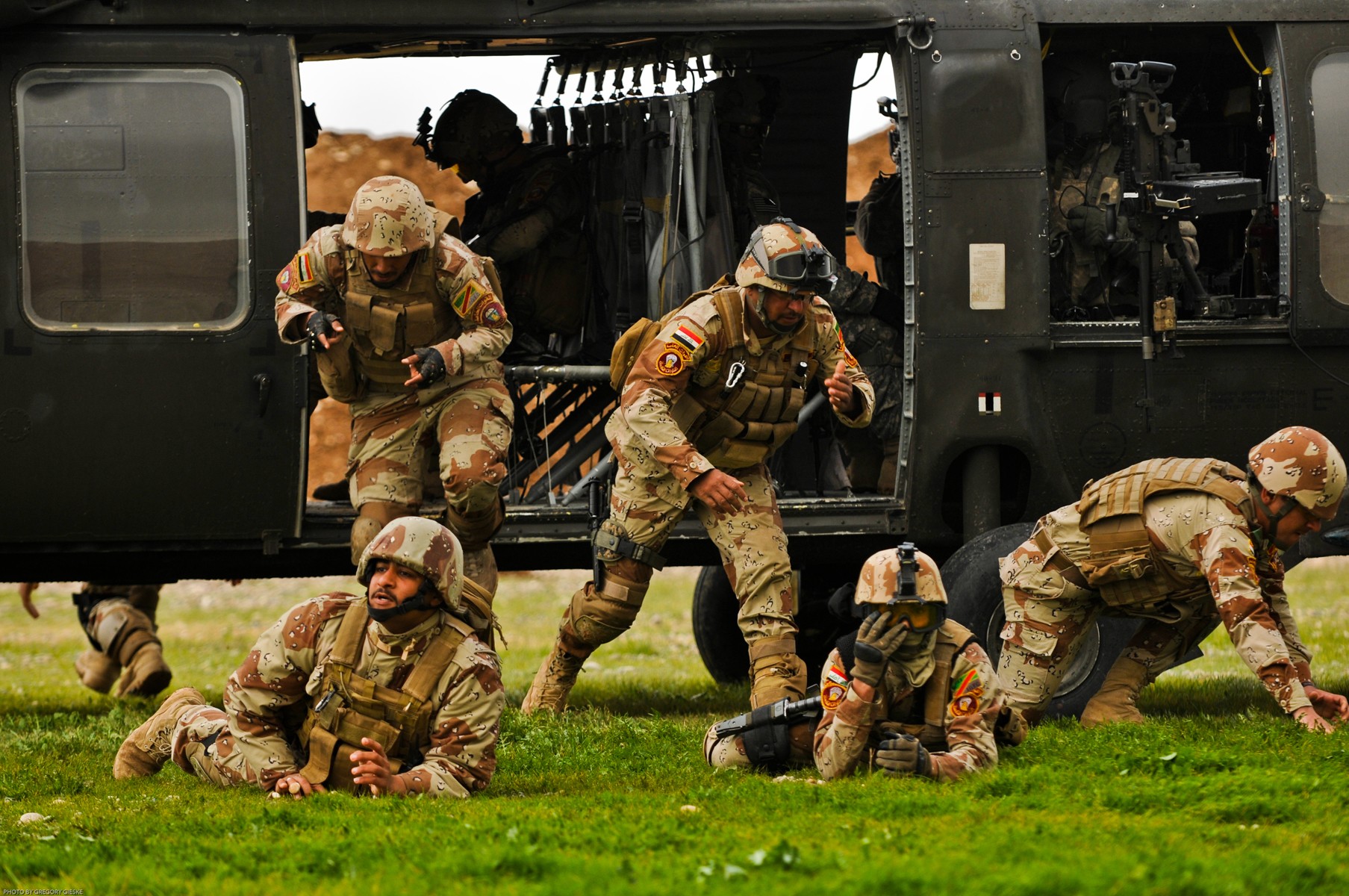
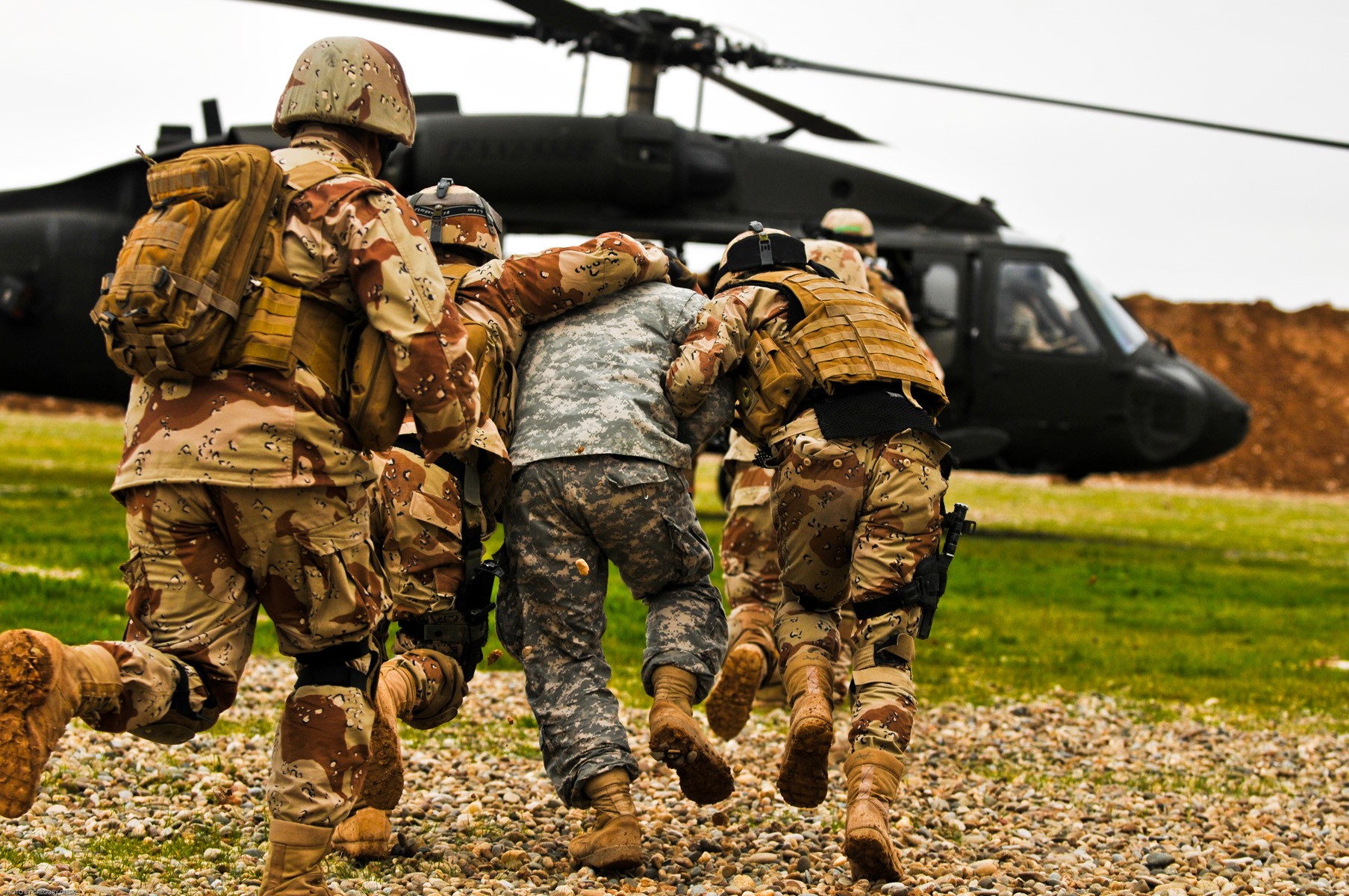
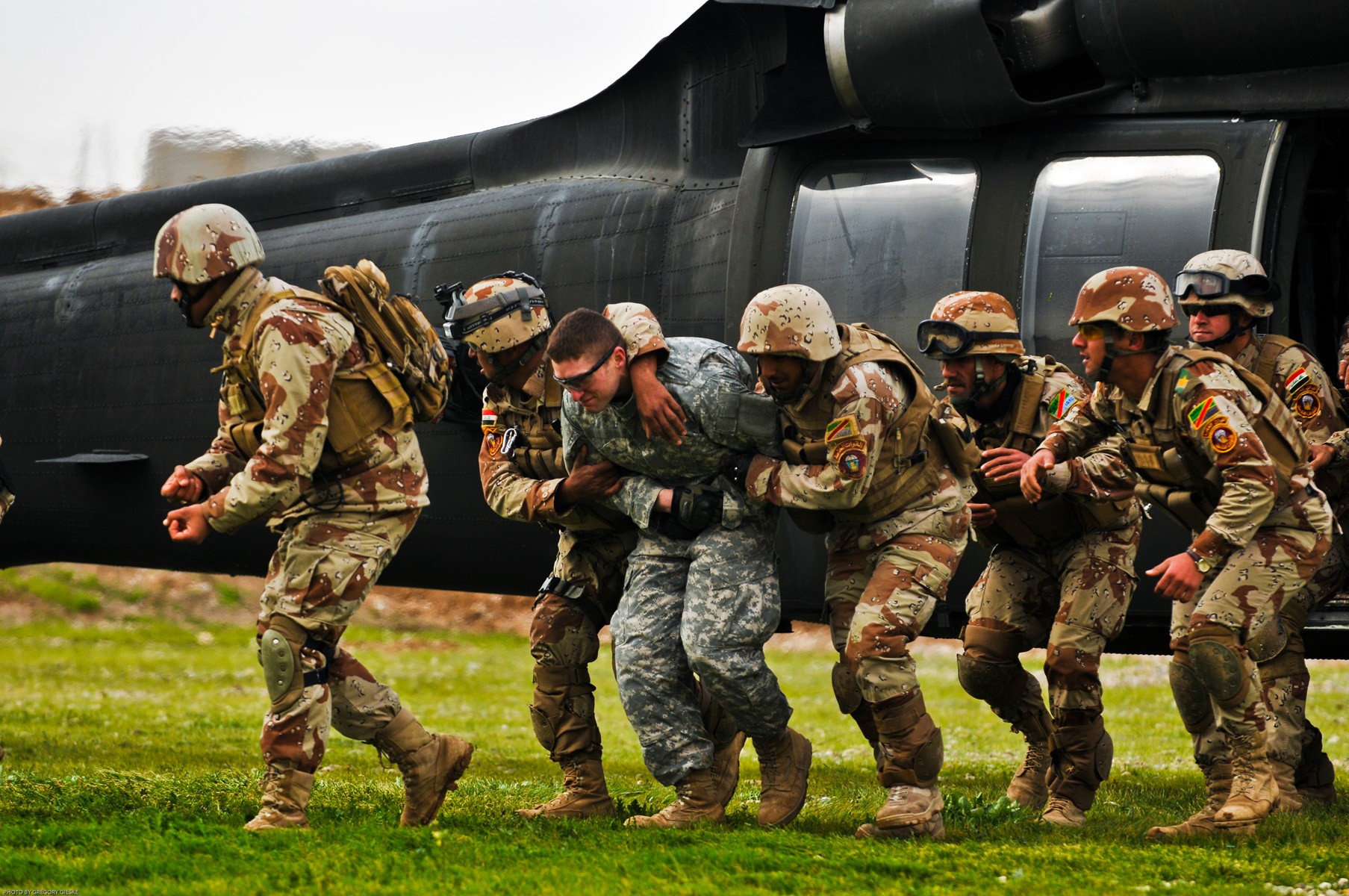
Social Sharing